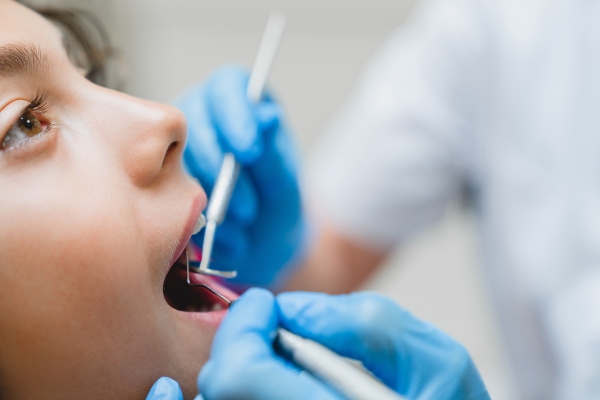 Avoiding baby root canals is possible. But sometimes, pulp damage can still happen in kids. This is when treating the baby tooth is necessary. Knowing when your child should get this dental restoration is important for your child’s health and development. Here are the signs your child may need baby root canals.
Avoiding baby root canals is possible. But sometimes, pulp damage can still happen in kids. This is when treating the baby tooth is necessary. Knowing when your child should get this dental restoration is important for your child’s health and development. Here are the signs your child may need baby root canals.
Signs that the child or parent may notice
Pain is the most common sign that may indicate the need for baby root canals. The child may experience a dull ache or intense pain. The throbbing pain may occur during changes in posture. The discomfort may come after consuming hot or cold foods or drinks.
Gum swelling and tenderness may also occur. The swelling of the affected area may even extend to the child’s neck or face. The source of inflammation is often the base of the tooth. In some cases, swelling may not happen. In its place would be a pimple-like bump beside the tooth.
The parent could also notice general body weakness in the child. This sign could happen with inflamed lymph nodes and fever. These signs mean that the child’s body is fighting the infection. Every child has a different degree of pulp damage. That is why seeing the dentist is important. Diagnostic exams can confirm if the child needs baby root canals.
Signs that the dentist may see
Seeing the dentist every six months is important for the child’s dental and general health. These visits can prevent the need for baby root canals. Dentists can spot early signs of a dental problem. Here are some of them:
- Drainage or pus from a dental infection
- Imbalance in the mouth
- Darkened tooth color
- Inflammation of the soft tissue
- Sensitivity
- Wiggly tooth
Diagnostic tests for baby root canals
The dentist could decide to perform more tests after seeing the signs. The tests will help the dentist determine what to do next. A tapping test can tell if the affected tooth or teeth is painful. Tapping healthy teeth will not be painful at all.
Dental X-rays will allow the dentist to see through the child’s teeth, gums, and jawbone. This diagnostic exam is painless. An infection will show in the scans if there are dark spots around the tooth’s roots. Thermal testing can expose which tooth suffers from temperature sensitivity. The dentist will use hot and cold temperatures on the affected teeth. Healthy teeth will stop hurting right away, while infected teeth will experience lingering pain for at least 30 seconds.
A pulp test involves holding an electric pulp tester against the infected teeth. This device will pass different electrical currents through the teeth. The nerves of a healthy pulp will experience a low-level tingling sensation. A dying or dead pulp will not feel anything because its nerves are already dead.
ReadKnowing the signs that call for baby root canals can help you set an appointment soon
Pain and discomfort are immediate signs your child needs baby root canals. These signs can motivate you to bring your child to the dentist right away. Your dentist can perform tests to confirm if your child needs baby root canals. If root canals are necessary, discuss it well with the dentist and then with your child. Working together can correct the pulp problem right away.
Request an appointment or call Grand Parkway Pediatric Dental at 832-579-0960 for an appointment in our Richmond office.
Recent Posts
A kid-friendly dentist can provide your child with the right dental care. Most adults go to a general dentist. Your child has a different set of needs, which is why finding a pediatric dentist is important. Here are the details on why finding a kid-friendly dentist is vital for your child’s oral health and comfort.Children…
Kids dentist practices are key to establishing a positive outlook on dental care, especially when guiding children through the early stages of oral health. Finding the right provider can transform what might otherwise feel like a stressful appointment into a comfortable, beneficial experience. Pediatric dentistry involves more than fixing cavities; it focuses on teaching proper…
Finding a kid-friendly dentist is essential for establishing healthy oral care habits in children early on. Regular dental cleanings significantly help prevent cavities, promote good dental hygiene, and ensure proper development as children grow. The dentist provides the necessary cleanings and exams in a welcoming and positive environment that makes children feel comfortable and engaged…


